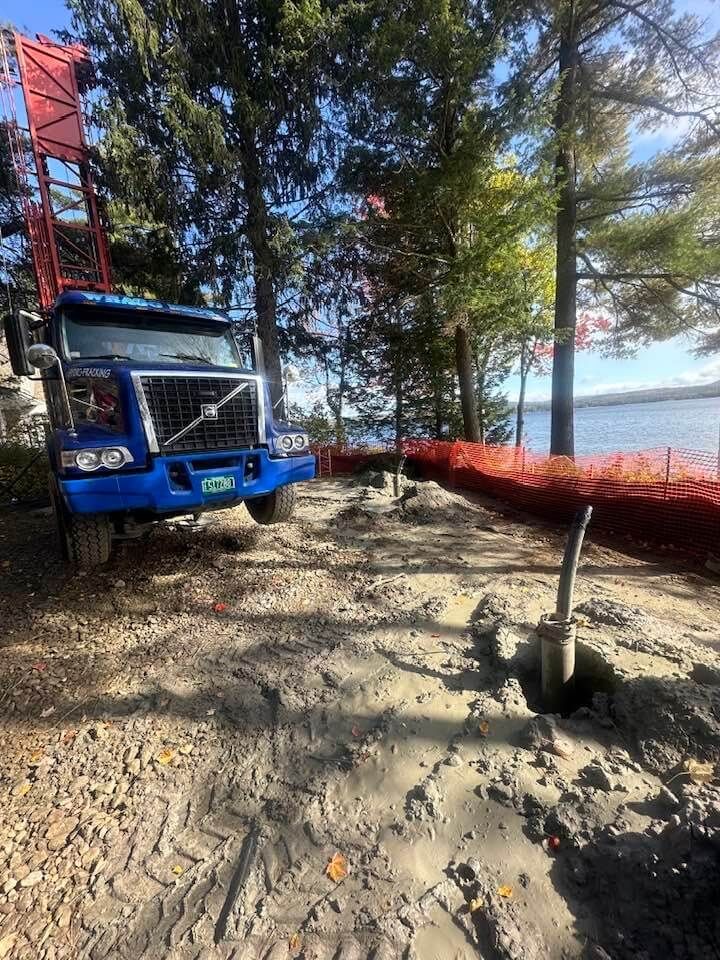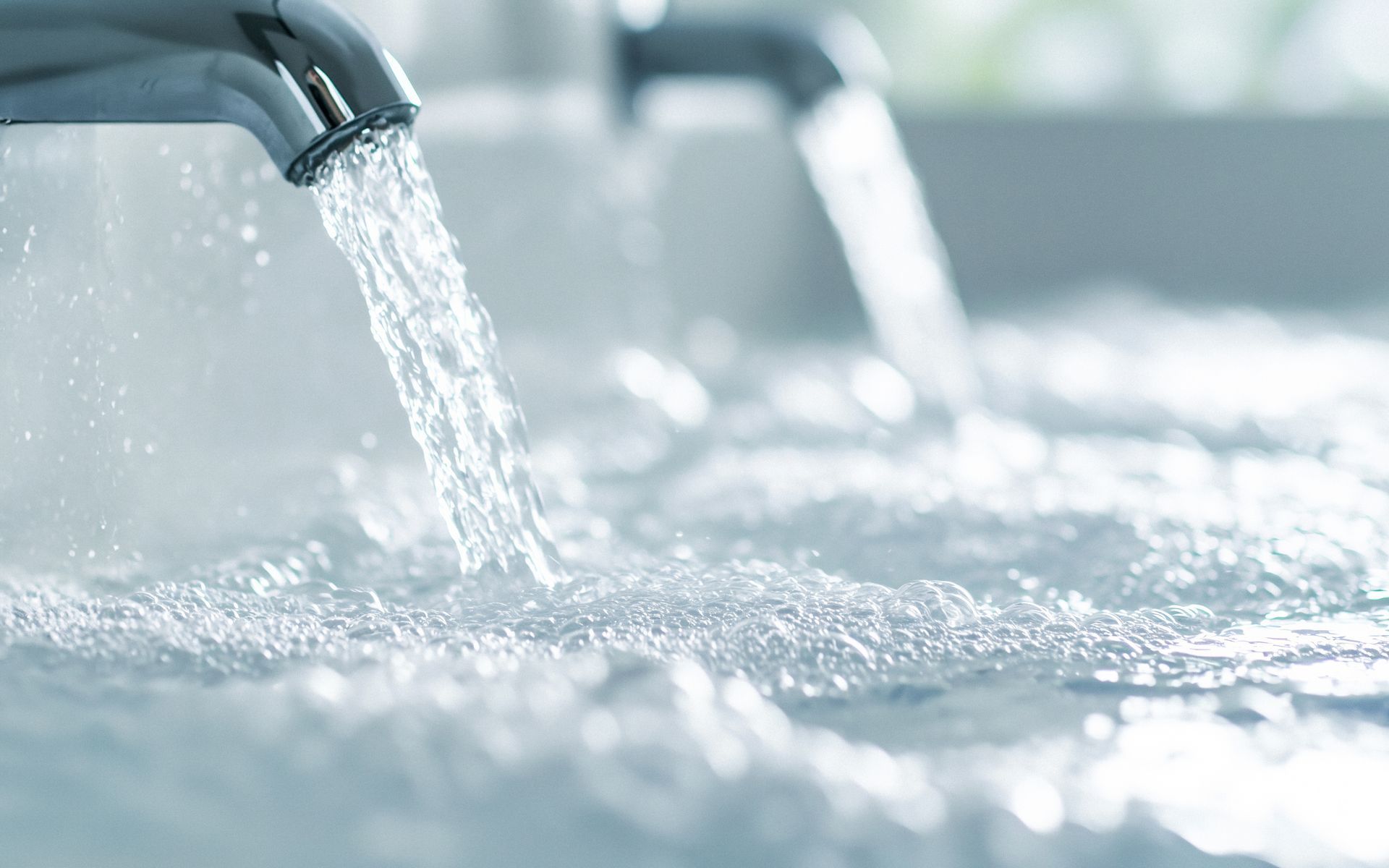Water treatment, water testing, well drilling and hydro-fracking services for VT, NH, and MA.
Do you need emergency well water service?
What is Unique About Obtaining Artesian Water from a Well?
Artesian water is prized for its natural purity and unique method of extraction. Like other water sources, artesian water can be at risk of various contaminants, but its natural filtration process helps mitigate this risk. Unlike other types of water, it rises to the surface due to natural pressure within a confined aquifer, without the need for mechanical pumping. This natural filtration process contributes to its exceptional taste and mineral content. In this article, we will explore what makes artesian water remarkable, its history, benefits, and how it compares to other water sources.
Key Takeaways
- Artesian water is sourced from confined aquifers and rises to the surface naturally due to geological pressure, distinguishing it from other water sources that require mechanical pumping.
- The mineral-rich composition of artesian water offers health benefits, including improved bone health and skin conditions, along with better hydration due to its natural purity.
- Sustainable management of artesian wells is essential to avoid over-extraction, which can diminish water pressure and availability, highlighting the importance of balance in usage and aquifer recharge.
What is Artesian Water?

Artesian water is derived from a specific type of underground aquifer that is confined by impermeable rock layers. The term ‘artesian’ originates from the region of Artois, France, where some of the earliest known artesian wells were located. This unique water source is celebrated for its natural ability to rise to the surface without the need for mechanical pumping, thanks to the pressure within the aquifer.
Found in various parts of the world, artesian water is a global phenomenon. Significant sources include the United States, with notable locations in Florida and Georgia, and the Great Artesian Basin in Australia, which is the largest artesian source on the planet. These regions benefit from the rich, naturally filtered water that artesian wells provide, making it a sought-after resource. Companies like the Artesian Water Company are committed to maintaining water quality and serving as responsible water utilities.
Geological formations confining the water within the aquifer create the natural pressure that allows artesian water to flow to the surface. This pressure ensures that the water continues to flow without the need for external energy, distinguishing it from other water sources that often require mechanical assistance. This unique characteristic not only makes artesian water eco-friendly but also ensures its exceptional purity and mineral content.
The History of Artesian Wells
The history of artesian wells dates back to the 12th century, with one of the earliest known examples flowing since 1126 in a region of northern France. The term ‘artesian’ itself is derived from the ancient province of Artois in France, where these unique well-drilling techniques were first applied. These historical wells showcased the ability to tap into confined aquifers, allowing water to flow naturally to the surface without pumps.
In the United States, the development of artesian wells gained momentum in the Kanawha Valley, initially driven by the need for salt-boring efforts. This marked the beginning of a significant shift in water sourcing techniques, paving the way for more widespread use of artesian wells. Levi Disbrow, recognized as the first professional artesian well driller in the U.S., successfully completed a well in New Brunswick, New Jersey, in 1824, further cementing the importance of this technology.
Advancements in well-drilling technology by the late 19th century increased the use of artesian wells in municipal water supplies. These wells provided a reliable and sustainable source of water, reducing the need for mechanical pumping and enhancing the quality of drinking water.
The historical significance of artesian wells continues to influence modern water services, demonstrating the enduring value of this natural resource.

How Artesian Wells Work
Artesian wells operate on a simple yet fascinating principle: harnessing natural pressure within a confined aquifer to bring water to the surface. Unlike regular wells that often rely on pumps, an artesian well taps into groundwater that is naturally pressurized within permeable rock layers. This pressure allows the water to rise to the surface without mechanical aid.
The geological formations surrounding an artesian well play a crucial role in maintaining this pressure. Impermeable rock layers above and below the aquifer create a confined environment, trapping the water and allowing pressure to build up. When a well is drilled into this confined aquifer, the pressure is released, causing the water to flow naturally to the surface.
This natural flow is sustained by recharge areas, where precipitation seeps into the aquifer, maintaining pressure and water availability. However, if the pressure within the aquifer is insufficient, the well may not yield water without mechanical assistance. The balance of geological formations, natural pressure, and responsible aquifer management determines the sustainability and efficiency of artesian wells.
Health Benefits of Artesian Water
Artesian water is renowned for its rich mineral content, which includes essential minerals like calcium and magnesium that support bone health. These minerals not only contribute to bone strength but also play a vital role in overall bodily functions. Magnesium is essential for muscle function and heart health, and calcium supports bone density and dental health.
The mineral composition of artesian water benefits both skin health and overall wellness. Minerals such as potassium, sulfur, and bicarbonate can help alleviate symptoms of skin conditions like eczema and psoriasis, promoting healthier skin. Additionally, the hydration provided by artesian water is often superior due to its natural purity, free from additives and pollutants.
Artesian water supports better circulation and detoxification processes. The natural filtration that occurs as water travels through the earth removes impurities, ensuring a clean and refreshing drink experience. It aids the lymphatic system and promotes detoxification, contributing to overall health and vitality.
Great Taste and Refreshing Quality
One of the most appealing aspects of artesian water is its great taste, which is attributed to its natural mineral richness. As the water travels through the earth, it undergoes a natural filtration process, resulting in a clean, crisp taste that is often described as refreshing and smooth. This distinct flavor profile sets artesian water apart from other water brands, making it a preferred choice for many.
Compared to other water brands, artesian water retains more natural minerals, contributing to a fuller taste profile. Many drinking water brands process their product with chemicals that can alter the flavor, but artesian water maintains its natural properties. This ensures that every glass of artesian water offers a pure and unadulterated taste experience.
Consumer preference surveys indicate that people find artesian water not only more enjoyable but also more refreshing than various bottled water options. The balance of minerals in artesian water enhances its flavor, making it a delightful choice for hydration. Whether you are drinking it straight from the bottle or pouring it into a glass, the taste of artesian water is undeniably superior.
Artesian Water vs. Other Water Brands
Comparing artesian water to other brands reveals differences in extraction and processing methods. Artesian wells tap into groundwater that is confined under pressure within an aquifer, enabling water to flow naturally to the surface without pumps. This natural filtration process enhances the purity and mineral content of artesian water, setting it apart from other bottled waters that often require mechanical assistance.
Artesian water is typically untreated and does not contain added chemicals or minerals, maintaining its natural state. In contrast, many bottled waters undergo treatment processes that can alter their composition and flavor. While spring water also comes from natural sources, its quality can vary significantly based on the surrounding environment, unlike the more consistent quality of artesian water.
Popular water brands like Fiji, Icelandic Glacial, and Mountain Valley highlight the distinctive flavors and qualities of their sources. For example, Fiji water, sourced from an ancient artesian aquifer, has a distinct flavor that some describe as refreshing and spa-like. Similarly, Icelandic Glacial water is praised for its full-bodied taste and light alkalinity. These comparisons underscore the unique attributes of artesian water that make it stand out in the crowded bottled water market.

Environmental Impact of Artesian Water
The environmental impact of artesian water is a crucial consideration for sustainability. Artesian wells source water from renewable aquifers, provided they are managed responsibly. Bottling water at the source reduces transportation energy, resulting in a smaller carbon footprint. Using solar energy for bottling facilities further reduces reliance on non-renewable energy sources, enhancing sustainability.
However, the production and disposal of plastic bottles present significant environmental concerns. Artesian water bottling operations can mitigate these issues by using fully recyclable packaging and offering reusable bottle options. This approach helps minimize plastic waste and promotes environmental responsibility.
The sustainable operation of artesian wells relies on the aquifer’s recharge rate; excessive extraction can lower pressure and reduce water availability. Over-extraction of artesian water can result in diminished pressure in wells, leading to potential drying up of the source. Therefore, it is essential to balance water extraction with the natural recharge rate to maintain the sustainability of artesian wells.
Wragg Brothers Well Drilling Services
Wragg Brothers Well Drilling, with over 65 years of experience, offers comprehensive well drilling, hydrofracking, and water treatment services in Vermont, New Hampshire, and Massachusetts. The process begins with a site visit to determine the optimal location for drilling an artesian well. Once the location is identified, a well drilling permit is drafted and submitted to the local health department for approval.
Once the permit is secured, a drilling date is scheduled to begin well construction. Upon completion, the well is disinfected and capped to ensure proper ventilation. In addition to well drilling, Wragg Brothers also provides hydrofracking services to restore water flow in existing wells. Their extensive experience ensures reliable service and customer satisfaction.
Serving clients across Vermont, New Hampshire, and Massachusetts, Wragg Brothers Well Drilling has built a reputation for professionalism and expertise. Their commitment to quality and sustainability makes them a trusted partner for all your artesian well needs.
How to Access Artesian Water
To access artesian water, contact Wragg Brothers Well Drilling, located in Windsor, VT. They can be reached at (800) 255-5890 or via email at office@wraggbrothers.com. With their extensive experience and professional service, Wragg Brothers can help you tap into the natural benefits of artesian water.
Wragg Brothers Well Drilling offers a range of services to meet your needs, from well drilling to water treatment. Their team of experts is dedicated to providing the best water solutions, ensuring you enjoy the pure and refreshing quality of artesian water.
Summary
In summary, artesian water stands out for its natural purity, rich mineral content, and unique extraction process. From its historical roots in France to modern applications, artesian wells continue to provide a reliable and sustainable source of high-quality water. The health benefits, great taste, and environmental impact make artesian water a superior choice compared to other water brands.
We encourage you to explore the benefits of artesian water for yourself. Contact Wragg Brothers Well Drilling for all your artesian well needs and experience the difference that this natural water source can make in your life. Embrace the purity and taste of artesian water and join the growing community of satisfied consumers.
Frequently Asked Questions
What makes artesian water different from other types of water?
Artesian water is distinct because it originates from a confined aquifer that is under natural pressure, enabling it to rise to the surface naturally without the need for mechanical assistance. This unique source contributes to its clarity and mineral content, setting it apart from other water types.
Where can artesian water be found?
Artesian water can be found worldwide, particularly in regions such as Florida, Georgia, and the Great Artesian Basin in Australia. These areas are known for their significant sources of artesian water.
What are the health benefits of drinking artesian water?
Drinking artesian water offers health benefits due to its rich mineral content, particularly calcium and magnesium, which promote bone health and overall bodily functions. Consequently, incorporating artesian water into your hydration routine can enhance your well-being.
How is artesian water more environmentally friendly?
Artesian water is more environmentally friendly due to reduced transportation energy and the use of recyclable packaging, which helps minimize plastic waste. This contributes to a smaller carbon footprint and promotes sustainability.
How can I access artesian water?
To access artesian water, you can contact Wragg Brothers Well Drilling, which offers well drilling services in Vermont, New Hampshire, and Massachusetts. This professional assistance will ensure effective access to artesian sources.
All Rights Reserved | Wragg Brothers Well Drilling


